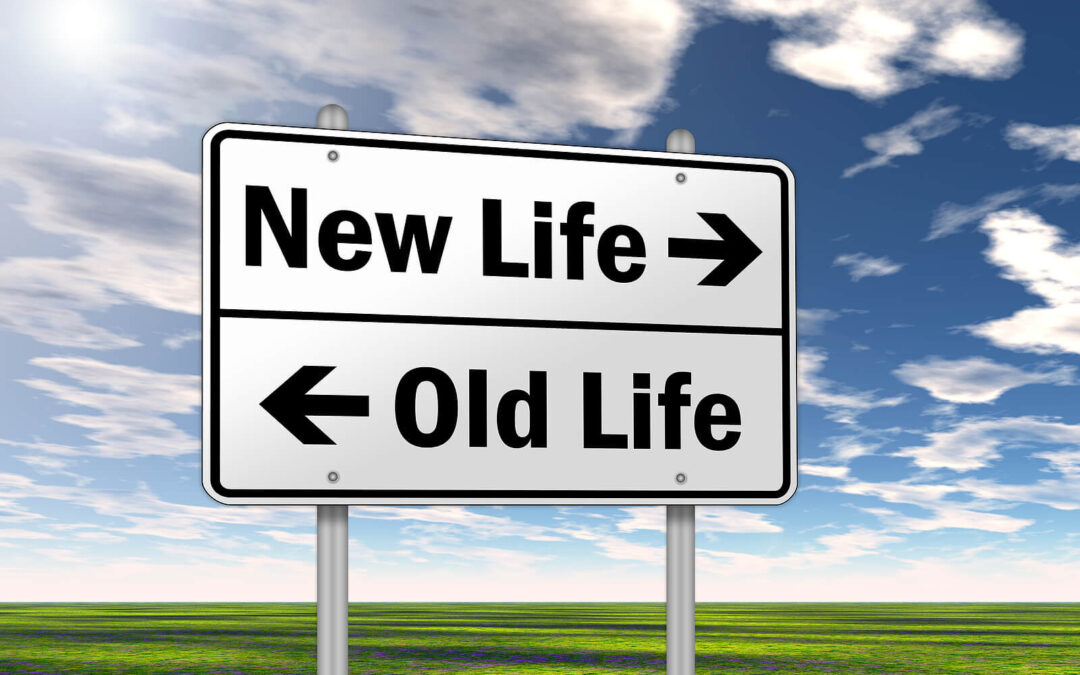What about life?
It is constantly changing. What is that saying? The more things change, the more they stay the same. That is very true, yet it does not make the transition or change in things any easier. Life transitions happen if we are prepared for them and when we are not ready for them. These changes can involve all aspects of our lives: social, emotional, personal, and environmental.
 So what are we calling a life transition, and can therapy help with transitions? Life transitions represent the shifts and transformations throughout a person’s life journey, leading to growth, self-discovery, new perspectives, and coping strategies. They can be both positive and negative experiences. Generally, when you think about changes associated with life stages, you’re thinking about life transitions.
So what are we calling a life transition, and can therapy help with transitions? Life transitions represent the shifts and transformations throughout a person’s life journey, leading to growth, self-discovery, new perspectives, and coping strategies. They can be both positive and negative experiences. Generally, when you think about changes associated with life stages, you’re thinking about life transitions.
Common Life Transitions
Everyone’s life experiences are unique, yet we often experience many of the same life transitions. Below is a list of some, but not a comprehensive list of transitions.
- Starting school (preschool, kindergarten, etc.)
- Graduating from school (e.g., high school or college)
- Entering the workforce (first job)
- Marriage or commitment to a long-term partnership
- Divorce or separation
- Relocating to a new city or country
- Career changes or job loss
- Retirement and retirement planning
- Death of a family member or friend
- Adolescence (transition from childhood to adulthood)
- Medical conditions
- Moving into a new house and apartment
- Starting a new business or entrepreneurial venture
These transitions represent a change from one state to another, and while we are experiencing these changes, we may experience some of the following problems and feelings.
Stress/ Anxiety:
Even the most positive transitions create stress and anxiety in our lives. This is generally due to uncertainty about what will happen in the new situation. Humans are creatures of habit, and when unsure about the future, we often worry and stress.
Depression:
Depression is common in transitions as we move from something we know to something we are not sure about. Also, depression is sometimes defined as the actual or perceived feelings of loss. Most transitions, in a way, do involve the loss of something.
Self-Esteem Issues:
During a transition, we may question our ability to complete the task or whether we are doing the correct thing. This may lead to questions about self-worth and one’s purpose in life, which can affect self-esteem.
Loneliness:
Moving to a new place or area or even experiencing a divorce or breakup can often result in feelings of loneliness and isolation.
Relationship Strain:
 Relationship transitions are difficult. Changes in relationships, such as marriage, divorce, or separation, can strain existing relationships and lead to conflict or emotional difficulties.
Relationship transitions are difficult. Changes in relationships, such as marriage, divorce, or separation, can strain existing relationships and lead to conflict or emotional difficulties.
Grief:
Transition-related losses, such as the loss of a loved one, a job, or a familiar environment, can trigger grief and mourning processes.
Financial Stress:
Changes in employment, income, or financial responsibilities can lead to financial stress and concerns about economic stability.
Substance Use:
Coping strategies that may have been effective for previous stressors may become ineffective in the transitions, and developing new coping strategies to manage the emotions can develop. Not all the coping strategies we use are healthy, and sometimes substance abuse develops.
Sleep Disturbances:
Sleep is often affected during transitions, whether it is sleeping too much or not enough. Getting sleep is very important to overall health, and changes in our sleep do affect many aspects of our lives.
Eating Habits:
During a significant transition, we may use food to cope with stress.
Health Concerns:
Sometimes, the transition is adjusting to or adapting to a new medical condition. Medical concerns can arise if we experience increased stress for extended periods.
Social interactions:
Transitions such as moving often lead to changes in social groups, and it can frequently feel overwhelming to start over and make new friends and social groups. Other transitions also affect our ability or desire to interact with friends and social support.
Fear of the Unknown:
Facing the unknown and adjusting to new circumstances can be challenging, leading to anxiety and uncertainty about the future.
Rumination:
During a transition, we may find ourselves ruminating about everything. We may overthink all aspects of our lives to make sense of the change and how to handle it.
Transitions are not all doom and gloom. They often give us a chance to grow in self-awareness and self-acceptance. We can learn more about who we are and what we want in life and from ourselves after a transition. Change can lead to a chance to reconnect with old friends or create new ones. It can encourage us to stretch past our comfort zone and learn to trust ourselves as possibly never before. It can be a time to learn new skills and learning. Transitions and change can allow adapting to new roles, responsibilities, and capabilities. Through this process, confidence and a sense of accomplishment happen, which may lead to increased resilience and competence to manage change in the future. It can seem daunting at the beginning of a change; however, it can be the catalyst for personal growth. Therapy can assist in this process.
Benefits of Therapy for Life Transitions
Therapy provides a safe and supportive environment to explore opportunities and challenges that come with transitions. Some of the specific benefits may include:
- Emotional Support
- Coping Strategies
- Problem Solving skills
- Self-Awareness
- Communication skills
- Stress Management
- Goal Setting and Achievement
- Increased Self-Confidence
- Accountability and Support
 The timing of therapy for a life transition can vary depending on individual circumstances and preferences. There is no one-size-fits-all answer, and the decision about when to seek treatment—before, during, or after the transition—should be based on your specific needs and goals. Here are some considerations for each timing:
The timing of therapy for a life transition can vary depending on individual circumstances and preferences. There is no one-size-fits-all answer, and the decision about when to seek treatment—before, during, or after the transition—should be based on your specific needs and goals. Here are some considerations for each timing:
- Learning tools and coping skills and providing emotional support before the expected change can help prior to the transition. Therapy may also be helpful before a significant change to help explore options and decision-making skills, allowing one to process information and make an informed and well-thought-out decision.
- Transition therapy can offer emotional support and help with coping with unexpected changes. Learning stress management techniques to use at the moment can also be a part of therapy during transitions.
- After a major transition, therapy can help process and integrate what happened. Therapy can help integrate lessons and reflect on the changes. Therapy provides a safe place to reflect on changes and their impact on daily life. Learning about resilience and acceptance can be part of this after a significant transition.
Begin Life Transitions Therapy
Transitions happen all the time in life. If you are ready to learn how transition therapy can benefit you specifically, please get in touch with Gray Horse Counseling to discuss further. I would be happy to offer a safe place for you to navigate transitions. You can start your therapy journey by following these simple steps:
- Contact me and schedule a free consultation.
- Check out my FAQs and read more about me
- Start navigating transitions in healthier ways!
Other Services Offered with Gray Horse Counseling
Life transitions therapy isn’t the only service I offer support with. I’m happy to offer in-person help in Powhatan, Richmond, and online in Virginia. Other services at Gray Horse Counseling include individual therapy, equine therapy anxiety therapy, group therapy, equine sports, clinical supervision, trauma therapy, and depression treatment. Check out my FAQs, read about me, and contact me today to get the help you deserve!

